12 start with P start with P

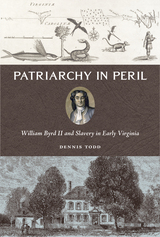
Byrd himself was perhaps the early colonial epitome of a patriarch, and typically, when historians examine Byrd and the prominence of patriarchal thought in colonial Virginia, they examine his relationships with his immediate family. In this book, however, Dennis Todd examines the patriarchal relations between Byrd and the workers on his plantations—his apprentices, his wageworkers, his overseers, his white servants, and especially his slaves. In doing so, this book illuminates a neglected stage in the formation of slavery in Virginia. Todd argues that patriarchal principles, which are often assumed to have justified slavery and to have offered a template for slave management, in fact did neither. Byrd was not the only Virginian to wrestle with the contradictions between patriarchal values and the realities of slavery, but few were as articulate.
In examining Byrd through the twin lens of slavery and patriarchy, Patriarchy in Peril makes an important contribution to our understanding of the man and his place in Virginia society as well as the contentious formation of early America.

The First Complete History of the Military Force of Colonial Pennsylvania, a Volunteer Body Created as a Practical Response to the Ideal of Pacifism
Known at various times as the Military Association of Pennsylvania, the Pennsylvania Association, or simply Associators, this long-neglected organization represented a new constituency in Pennsylvania politics and by extension, a new American response to arbitrary rule. Organized on December 7, 1747, at Philadelphia, the Military Association, an all-volunteer military establishment pledged to the defense of Pennsylvania, served as the de facto armed force for Pennsylvania, a colony whose leadership, a loose coalition of Quaker and German pacifists, land barons, and merchants, foreswore military preparedness on religious and ideological grounds. For the Associators, including their most noted supporter, Benjamin Franklin, a defenseless colony was no longer practical. During the War of Austrian Succession and again in the Seven Years’ War, Associators organized defense efforts in defiance of the Pennsylvania colonial leadership. Associators also helped defend American Indian refugees against the infamous Paxton Boys in 1764. By 1775, Associators found themselves as the colony’s only legitimate military leadership and, by capitalizing on electoral gains in the lead up to the American Revolution, Associators assumed offices vacated by former officials. During the critical battles of 1776, the Associators in their distinctive round hats and brown coats proved a decisive asset to the Continental Army.
In The Pennsylvania Associators, 1747–1777, historian Joseph Seymour has painstakingly researched primary source materials in order to write the first comprehensive history of this influential organization. Seymour demonstrates that while the Pennsylvania Associators contributed to success in the campaigns in which they fought, particularly the battles of Trenton and Princeton, a more fascinating and important investigation are the concerns that motivated these men. Associators considered military service in defense of their religious and civil liberties as a natural right. For three decades, Associators demonstrated that belief in and out of uniform. In a colony founded on religious exceptionalism, Associators saw themselves as faithful soldiers and active agents against leadership by entitlement, a principle guiding our government today.

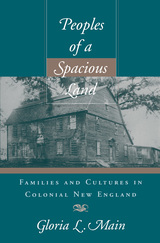
In this book about families--those of the various native peoples of southern New England and those of the English settlers and their descendants--Gloria Main compares the ways in which the two cultures went about solving common human problems. Using original sources--diaries, inventories, wills, court records--as well as the findings of demographers, ethnologists, and cultural anthropologists, she compares the family life of the English colonists with the lives of comparable groups remaining in England and of native Americans. She looks at social organization, patterns of work, gender relations, sexual practices, childbearing and childrearing, demographic changes, and ways of dealing with sickness and death.
Main finds that the transplanted English family system produced descendants who were unusually healthy for the times and spectacularly fecund. Large families and steady population growth led to the creation of new towns and the enlargement of old ones with inevitably adverse consequences for the native Americans in the area. Main follows the two cultures into the eighteenth century and makes clear how the promise of perpetual accessions of new land eventually extended Puritan family culture across much of the North American continent.

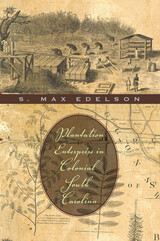
This impressive scholarly debut deftly reinterprets one of America's oldest symbols--the southern slave plantation. S. Max Edelson examines the relationships between planters, slaves, and the natural world they colonized to create the Carolina Lowcountry.
European settlers came to South Carolina in 1670 determined to possess an abundant wilderness. Over the course of a century, they settled highly adaptive rice and indigo plantations across a vast coastal plain. Forcing slaves to turn swampy wastelands into productive fields and to channel surging waters into elaborate irrigation systems, planters initiated a stunning economic transformation.
The result, Edelson reveals, was two interdependent plantation worlds. A rough rice frontier became a place of unremitting field labor. With the profits, planters made Charleston and its hinterland into a refined, diversified place to live. From urban townhouses and rural retreats, they ran multiple-plantation enterprises, looking to England for affirmation as agriculturists, gentlemen, and stakeholders in Britain's American empire. Offering a new vision of the Old South that was far from static, Edelson reveals the plantations of early South Carolina to have been dynamic instruments behind an expansive process of colonization.
With a bold interdisciplinary approach, Plantation Enterprise reconstructs the environmental, economic, and cultural changes that made the Carolina Lowcountry one of the most prosperous and repressive regions in the Atlantic world.
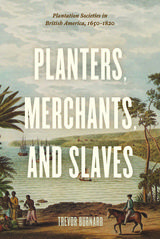


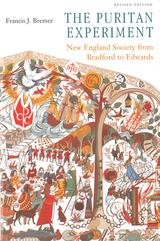
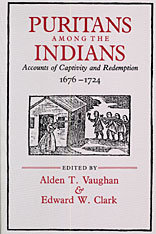
READERS
Browse our collection.
PUBLISHERS
See BiblioVault's publisher services.
STUDENT SERVICES
Files for college accessibility offices.
UChicago Accessibility Resources
home | accessibility | search | about | contact us
BiblioVault ® 2001 - 2024
The University of Chicago Press









